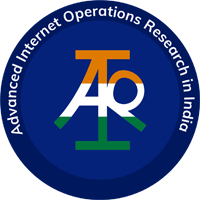In today’s rapidly evolving technological landscape, the need for timely and robust standards is more critical than ever. Standards are the backbone of interoperability, safety, and innovation across industries, ensuring that diverse systems and products can work together seamlessly. However, the traditional methods of standards development and testing are often slow and cumbersome, failing to keep pace with the swift advancements in technology. This lag can result in fragmented systems, security vulnerabilities, and missed opportunities for innovation.
The Problem Statement
The core issue at hand is the inefficiency and inflexibility of current standards development processes. Traditional methods rely on lengthy consensus-building phases, extensive documentation, and multiple rounds of testing and revision. This approach, while thorough, cannot match the speed at which new technologies emerge and evolve. Moreover, the lack of agility in the existing frameworks means that by the time a standard is finalized, it may already be outdated or misaligned with the latest technological advancements.
Key challenges include:
- Speed: The slow pace of standards development cannot keep up with the rapid innovation cycles in technology.
- Adaptability: Current processes lack the flexibility to quickly adapt to new information or technological changes.
- Collaboration: Effective collaboration between diverse stakeholders is often hampered by geographical, organizational, and disciplinary silos.
- Testing: Traditional testing methods are time-consuming and often fail to simulate real-world conditions accurately.
Areas of Research
To address these challenges, our research focuses on developing an agile network platform specifically designed for standards development and testing. This platform aims to streamline and accelerate the entire process, from initial concept to final deployment, while ensuring high levels of collaboration and adaptability. The key areas of research include:
- Agile Methodologies in Standards Development
- Exploring how principles from agile software development can be applied to the standards creation process.
- Investigating iterative development, continuous feedback loops, and rapid prototyping to enhance flexibility and speed.
- Digital Collaboration Tools
- Developing and integrating digital tools that facilitate real-time collaboration among stakeholders.
- Leveraging cloud-based platforms, virtual meeting spaces, and collaborative document editing to break down geographical and organizational barriers.
- Automated Testing Frameworks
- Creating automated testing environments that can quickly validate standards against real-world scenarios.
- Utilizing simulation and emulation techniques to replicate diverse conditions and ensure comprehensive testing.
- Dynamic Adaptation Mechanisms
- Designing mechanisms that allow standards to be dynamically updated and refined as new information becomes available.
- Implementing version control and modular design to facilitate ongoing evolution and improvement of standards.
- Interdisciplinary Approaches
- Encouraging cross-disciplinary collaboration to incorporate insights from various fields such as computer science, engineering, and social sciences.
- Understanding the socio-technical dynamics that influence standards adoption and compliance.
Conclusion
By focusing on these areas, our research aims to create a more agile, collaborative, and efficient framework for standards development and testing. The envisioned platform will not only accelerate the creation of standards but also ensure they are robust, adaptable, and aligned with the latest technological trends. In doing so, we hope to address the critical gaps in the current system and pave the way for a future where standards development is as dynamic and innovative as the technologies it seeks to govern.
Stay tuned for updates on our progress and insights from our ongoing research. Your feedback and collaboration are always welcome as we embark on this transformative journey
